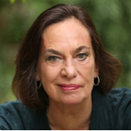
Reflective statement about my input to the IFIS Online Colloquium
A) How did you experience our Colloquium, in general, and the way your presentation was handled there?
The colloquium was well prepared in close cooperation. So an inspiring agenda was created to achieve a good combination of information, reflexion, intuition and dialogue.
B) Did you have specific goals, concerns or objectives connected to your presentation, and how has the Colloquium helped you to achieve those?
I wanted to introduce a clear distinction between principles of the masculine and feminine, both existing in each man and in each woman, and on the other side a gender perspective which differentiates between men and women.
1.The first focus has been to give respect and appreciation to the principles of the feminine and the masculine and to acknowledge in each of them the bright and the shadow side;
2.The second focus has been to give attention to the misuse of the masculine in men (origin, form, expression) and to bring to attention how this misuse could eventually be transformed from young age onwards.
C) Which important questions came up during the event, and which avenues for further discussion or research emerged that would be particularly worthwhile to deepen in the future?
The wounding of the masculine principle differs highly between different cultures. It has been particularly interesting to have one participant from a muslimn country, thus broadening the perspective.
It might be interesting to form gendered subgroups to deepen the consciousness respectively, thus coming to a better understanding, what the male child, boy, adult might need to transform the shadow of the masculine.
It would be interesting to deepen the understanding of the polar principles, the means of balancing them, the areas of application and the foreseeable outcome.
A detailed report about this Colloquium by Iris Kunze is available here:
https://www.archiv.ifis-freiburg.de/sites/www.ifis-freiburg.de/files/im…
For further reading:
- Suki Colegrave: Yin and Yang. Die Kräfte des Weiblichen und des Männlichen: Eine inspirierende Synthese von westlicher Psychologie und östlicher Weisheit, Frankfurt: Fischer 1984Riane Eisler: Kelch und Schwert. Unsere Geschichte, unsere Zukunft. Weibliches und männliches Prinzip in der Geschichte. (2005)
- Gerald Hüther: Männer. Das schwache Geschlecht und sein Gehirn, Vandenhoek & Ruprecht 2016
- Barbara von Meibom: Spirituelles Selbstmanagement. Ein Weg zur Versöhnung von Macht und Liebe, Bielefeld: Kamphausen 2009 (also as E-Book)
- Book to read and soon to be translated into English https://tredition.de/autoren/raymond-fismer-18238/ein-ganzer-mann-paper… and www.https://integraleuropeanconference.com/project/raymond-fismer/
